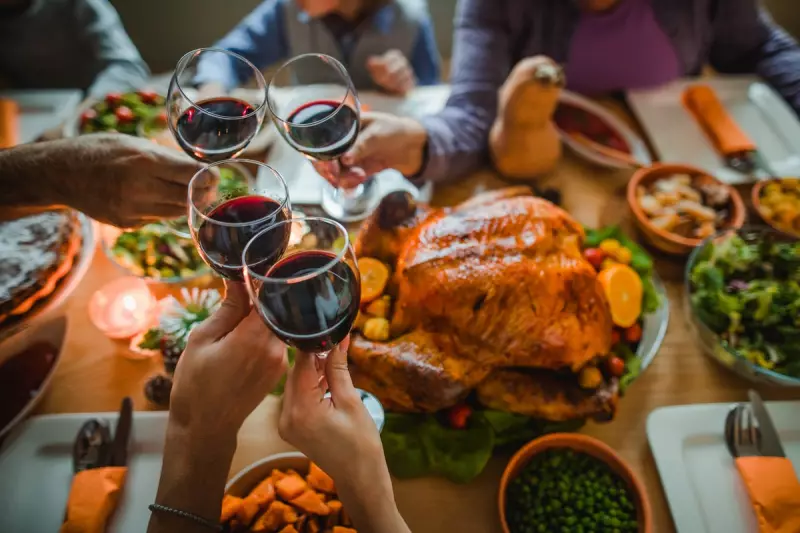
For many people, the holiday season is a time for cherished traditions and quality time with loved ones. These gatherings are often centred around delicious food, making it common to eat more than you typically would.
You are probably familiar with that sensation of being overly full – the moment you transition from pleasantly satisfied to uncomfortably stuffed. Alongside the physical discomfort, it is not unusual to experience pangs of guilt for consuming more than you had planned.
The combined physical and psychological pressure of festive feasts can be challenging. However, as a registered dietitian, I want to reassure you that your body is well-equipped to handle that extra food and drink. Your overall health and wellbeing are defined by far more than a few days of indulgence. In fact, the experience of sharing a meal can play a vital role in creating positive, lasting holiday memories.
What Happens to Your Body During a Large Meal
If you have ever been curious about the internal processes following a big meal, you are certainly not alone. Gaining a basic understanding of how digestion works can make those post-meal sensations feel less mysterious and significantly reduce stress.
Our food consists of three primary macronutrients: carbohydrates, proteins, and fats. Your gastrointestinal tract employs both mechanical and chemical methods to break these nutrients down into their simplest forms. This allows them to be absorbed and used for energy, cellular repair, and other essential biological functions.
When you sit down for a substantial holiday dinner, you are likely to consume a larger quantity of all these macronutrients in a relatively short period. This increased volume of food simply requires more time to digest, meaning it will travel more slowly through your GI tract.
It is also important to note that protein and fats naturally take longer to break down. While carbohydrate-rich foods like a granola bar offer a quick energy boost, adding more protein and fat to your meal provides a more sustained release of energy. This slower digestive process can actually be beneficial for maintaining steady energy levels and controlling your appetite.
Managing Physical Discomfort After Eating
You can rest assured that your digestive system will continue its work regardless of the meal's size. The real question is how long the process will take and whether it might cause some temporary unease.
As you eat, your stomach expands to accommodate the food. While the stomach works to pass its contents into the small intestine, there is an increased chance of heartburn. This is a backflow of acidic stomach contents that can cause a burning sensation in your chest or a sour taste in your mouth. Extra food can also lead to stomach pain, nausea, gas, bloating, and a general feeling of sluggishness.
Your body begins preparing for digestion even before the first bite. The initial sight and smell of food trigger increased production of saliva and stomach acid in anticipation of the task ahead.
When the digestive workload is heavier than usual, your body temporarily expends more energy to fuel the process. This involves both breaking down macronutrients and absorbing that fuel for later use. Consequently, feeling more tired after a large meal is perfectly typical.
To help reduce physical discomfort, try to remain upright after eating. Although lying down might be tempting, it can worsen stomach pain and increase the risk of heartburn. Allow your body time by staying upright for at least two to three hours after your meal, letting gravity assist the process. A brief 10- to 15-minute walk can also benefit digestion by stimulating stomach contractions and increasing blood flow to the GI tract. This can help move food from the stomach into the small intestine more efficiently.
Moving Beyond Food Guilt and Embracing Connection
A single day of indulgent eating will not lead to permanent weight gain or cause lasting changes to your physical health. However, repeated cycles of food-related guilt can, over time, foster an unhealthy relationship with eating.
The way we think and talk about food is just as important as the physical sensations we experience after eating. Food does not possess moral value, yet it is easy to fall into the habit of labelling items as 'good' or 'bad'. This mindset frequently emerges during the holidays. Consider how often you hear statements like, 'I was good all morning so I can eat more tonight,' or 'I'm going to be bad and have the pie, too.' The language you use about food directly influences how you feel about eating it and, ultimately, about yourself.
Food is also a powerful conduit for positive emotions and fond memories. When your body recognises a strong emotion linked to a particular food's aroma, the amygdala – the emotional centre of your brain – alerts the hippocampus, which is responsible for forming and storing long-term memories. This explains why the scent of a grandmother's famous pie can instantly transport you to a vivid, cherished memory.
This holiday season, try to focus less on calorie counts and more on the company, the laughter, and the unique scents and flavours that define your traditions. Eat the foods that bring you comfort and a sense of connection; you are nourishing far more than just your body.
About the author: Bryn Beeder is a Visiting Instructor in Kinesiology, Nutrition, and Health at Miami University. This article was originally published on The Conversation on Tuesday 18 November 2025.






